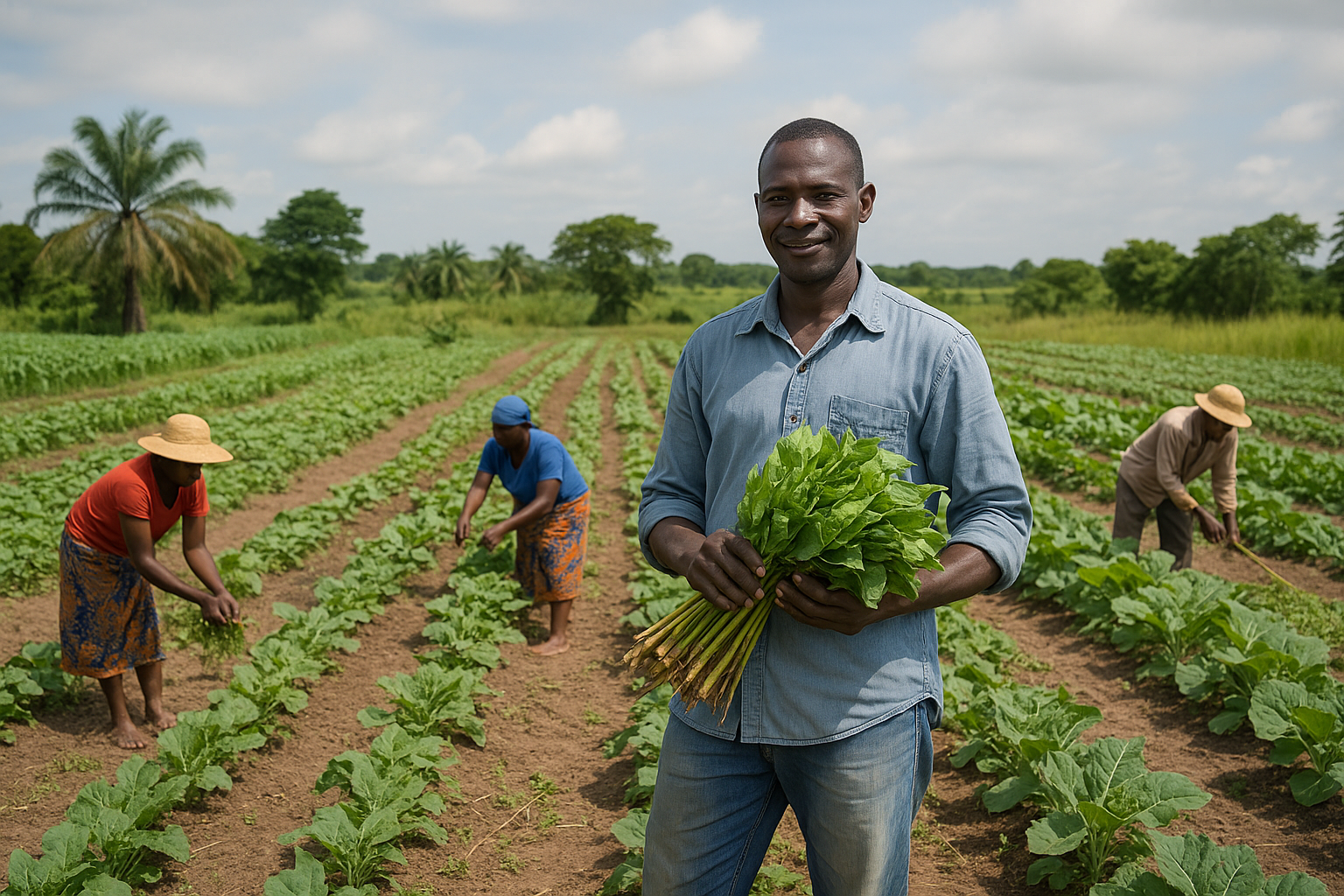World Bank Grants $18.3 Million to Boost Sierra Leone’s Climate and Biodiversity Resilience
The additional financing will support integrated landscape management (ILM) and biodiversity conservation while enhancing food security and the resilience of vulnerable communities.

The World Bank has approved an additional $18.34 million grant to help Sierra Leone strengthen biodiversity protection, environmental sustainability, and climate change resilience through expanded investments in Nature-Based Solutions (NBS). The funding, provided via the Least Developed Countries Fund (LDCF) under the Global Environment Facility (GEF), will scale up activities under Phase 2 of the West Africa Food System Resilience Program (FSRP) — a major regional initiative aimed at transforming food systems across West Africa.
A Step Forward for Climate-Resilient Development
The additional financing will support integrated landscape management (ILM) and biodiversity conservation while enhancing food security and the resilience of vulnerable communities. The World Bank said the funds will be used to promote climate-smart agriculture, restore degraded ecosystems, and build community capacity for adaptive land use and natural resource management.
"Climate change poses a severe risk to food security and livelihoods, especially in rural areas where most people live," said Abdu Muwonge, World Bank Country Manager for Sierra Leone. "This additional financing will help Sierra Leone strengthen its ability to adapt to these challenges, promoting sustainable agricultural practices and a more resilient food system. The grant reflects the ongoing partnership between the World Bank and the Government of Sierra Leone in addressing critical development challenges and fostering a secure, prosperous future for its citizens."
The project will provide technical and financial support to expand nature-based and ecosystem-led interventions that restore forests, wetlands, and watersheds. It will also introduce more climate-resilient crop varieties, diversify incomes through eco-enterprise development, and promote environmental awareness at the community level.
Strengthening Regional Food System Resilience
Launched in 2022, the West Africa Food System Resilience Program (FSRP) is a $1.17 billion regional initiative that supports food security, agricultural innovation, and climate resilience across eight West African countries: Burkina Faso, Chad, Ghana, Mali, Niger, Senegal, Sierra Leone, and Togo. The program also engages key regional institutions, including the Economic Community of West African States (ECOWAS), the Permanent Interstate Committee for Drought Control in the Sahel (CILSS), and the West and Central African Council for Agricultural Research and Development (CORAF).
With this latest grant, Sierra Leone's total financing under the FSRP now stands at $153.34 million. The country's component focuses on building food systems that can withstand climate shocks, reduce poverty, and ensure long-term food security.
Adetunji Oredipe, World Bank Senior Agriculture Economist and Task Team Leader, explained that the new funding will help the country accelerate its transition toward sustainable food systems. "This grant will support activities that advance climate change mitigation and adaptation objectives, such as restoring degraded landscapes and modifying agricultural production techniques to reduce greenhouse gas emissions," he said. "The additional resources will enable the project to reach more beneficiaries and ultimately contribute to a stronger and more resilient food sector."
Nature-Based Solutions at the Core of Climate Adaptation
Nature-Based Solutions are central to Sierra Leone's strategy for addressing climate change and environmental degradation. These include reforestation, soil and water conservation, agroforestry, and the restoration of mangroves and wetlands that protect against flooding and coastal erosion.
The LDCF-funded initiative will also invest in community-driven integrated landscape management, linking local development priorities with broader ecological goals. Training and awareness programs will help farmers and local authorities adopt practices that enhance soil fertility, water retention, and biodiversity protection.
The Ministry of Environment and Climate Change will lead the implementation of the project in close collaboration with the Ministry of Agriculture and Food Security and other government agencies responsible for watershed management, forestry, and rural development.
Aligning with National Climate and Development Goals
The initiative directly supports Sierra Leone's commitments under its 2021 Nationally Determined Contribution (NDC) to the Paris Agreement and the National Adaptation Plan (NAP). Both documents identify climate-smart agriculture and ecosystem restoration as key pillars of national climate action.
By combining policy reform, research, and local capacity-building, the project aims to create a coherent framework for scaling up nature-based and sustainable agricultural solutions across the country.
Building Resilience Through Partnerships
The new grant exemplifies the World Bank's continued commitment to climate finance and inclusive growth in West Africa. Through collaboration with the Global Environment Facility and the Least Developed Countries Fund, the Bank is helping vulnerable nations strengthen resilience against environmental and economic shocks.
The World Bank's support aligns with its broader mission to end extreme poverty and promote shared prosperity through climate action. In Sierra Leone, the Bank has been a key partner in advancing rural livelihoods, renewable energy access, and post-disaster recovery efforts.
As the country confronts mounting climate challenges, the expansion of the FSRP provides an opportunity to link food security with ecosystem preservation — ensuring that Sierra Leone's development pathway remains both sustainable and inclusive.
ALSO READ
-
World Bank Expands $290 Million Health Security Program to Central Africa
-
World Bank’s 2024 Liberia Economic Update Urges Shift Toward Inclusive Jobs
-
World Bank’s 2024 Liberia Economic Update Urges Shift Toward Inclusive Jobs
-
BJP MLA Pushes for Climate Resilience Task Force in India
-
World Bank Report Highlights Resilience, Risks, and Reform in Pakistan’s Economy









